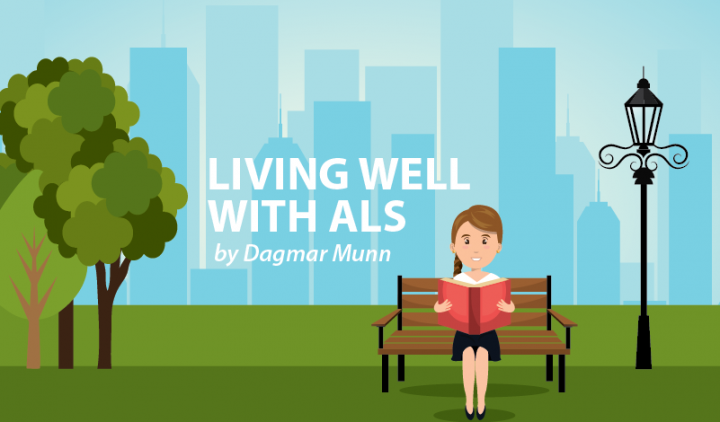Staying Current on ALS Research and Learning from the Experts
Written by |

Recently, I attended an “Ask the Experts” educational seminar sponsored by my local chapter of the ALS Association. It’s an annual event that presents current information on ALS-related topics and allows attendees to exchange ideas with fellow ALS patients.
This year’s theme was “ALS clinical trials and research,” a hot topic in the ALS community.
The Right to Try
Our first speaker, Jinsy Andrews, MD, director of neuromuscular clinical trials at Columbia University, led us through the complex issues surrounding a patient’s access to unproven treatments for ALS. I learned several interesting facts from her presentation that gave me a better perspective of the Right to Try Act, which was signed into law last year:
- During the 1960s, it took around two and a half years for a new drug to go from development to final approval by the U.S. Food and Drug Administration (FDA). But by the ’80s, the entire process had ground down to a very slow eight years.
- The AIDS epidemic in the ’80s drew attention to this slowdown and spawned the work that led to the Right to Try initiative.
- Advocates spent the following decades fighting to have the initiative signed into law as the Right to Try Act, which finally happened on May 30, 2018.
According to the FDA: “This law is another way for patients who have been diagnosed with life-threatening diseases or conditions who have tried all approved treatment options and who are unable to participate in a clinical trial to access certain unapproved treatments.”
A webinar featuring Dr. Andrews addressing this topic is available at the website of the Northeast Amyotrophic Lateral Sclerosis Consortium (NEALS).
The ALS News Today forums are a place to connect with other patients, share tips and talk about the latest research. Check them out today!
The National ALS Registry
“We do more than just count ALS cases,” announced the next presenter, Paul Mehta, MD, principal investigator of the National Amyotrophic Lateral Sclerosis (ALS) Registry.
I’ll admit that I was aware of the registry and had intended to go online and fill out their surveys, someday. But having listened to Dr. Mehta explain what the registry does and who it helps, those surveys are now at the top of my to-do list.
The registry’s goal is to identify the causes and risk factors of ALS, assist in the development of treatments, and eventually discover a cure.
The registry has already collected demographics for 80-85 percent of ALS cases in the U.S. It funds and publishes research and helps to link up interested ALS patients with clinical trials that are seeking participants.
If you have not yet done so, I urge you to go to the National ALS Registry’s website. Watch their informational video, sign up, and start completing their surveys. It’s a super easy way to participate in research in the comfort of your own home.
Patients and caregivers Q&A
During the afternoon session, I was a member of a panel that took questions from the audience. This turned into a lively discussion that covered several topics. Following are some useful tips I picked up that focused on traveling considerations.
- We agreed that calling ahead to arrange for an accessible motel or hotel room is imperative. One frequent ALS traveler added that they make sure to call back several times to reconfirm the details.
- If you arrive and find your room is not accessible — and pushing back the furniture doesn’t help — ask for an upgrade to a larger room such as a suite. At least you will have adequate space to move around and for your supplies and equipment.
- If you’re unsure about a hotel at your destination, try calling the ALS Association chapter for that state. They can recommend a hotel that is “ALS-friendly.”
If there is an ALS-related educational event in your area, I encourage you to attend. It’s important to stay current on ALS issues, share ideas, and learn from others.
Together we can learn to live well while living with ALS.
***
Note: ALS News Today is strictly a news and information website about the disease. It does not provide medical advice, diagnosis, or treatment. This content is not intended to be a substitute for professional medical advice, diagnosis, or treatment. Always seek the advice of your physician or other qualified health provider with any questions you may have regarding a medical condition. Never disregard professional medical advice or delay in seeking it because of something you have read on this website. The opinions expressed in this column are not those of ALS News Today or its parent company, Bionews Services, and are intended to spark discussion about issues pertaining to ALS.







Ronnie Ruiz
I would like to attend the clinical trial brainstorm stem cells
Dagmar Munn
Ronnie - - here is a link to the N.E.A.L.S. Consortium site listing current trials on stem cells: https://www.neals.org/als-trials/search-for-a-trial/
Diana Belland
Thank you, Dagmar, for another wonderful post sharing information with us from the "Ask the Experts" educational seminar. I've known about the ALS Registry for about six weeks but hadn't yet signed up. After reading your post, I clicked on the link, signed up and completed all the surveys! Thanks for reminding us that we can contribute to research efforts in this way.
radulescu constantin
news